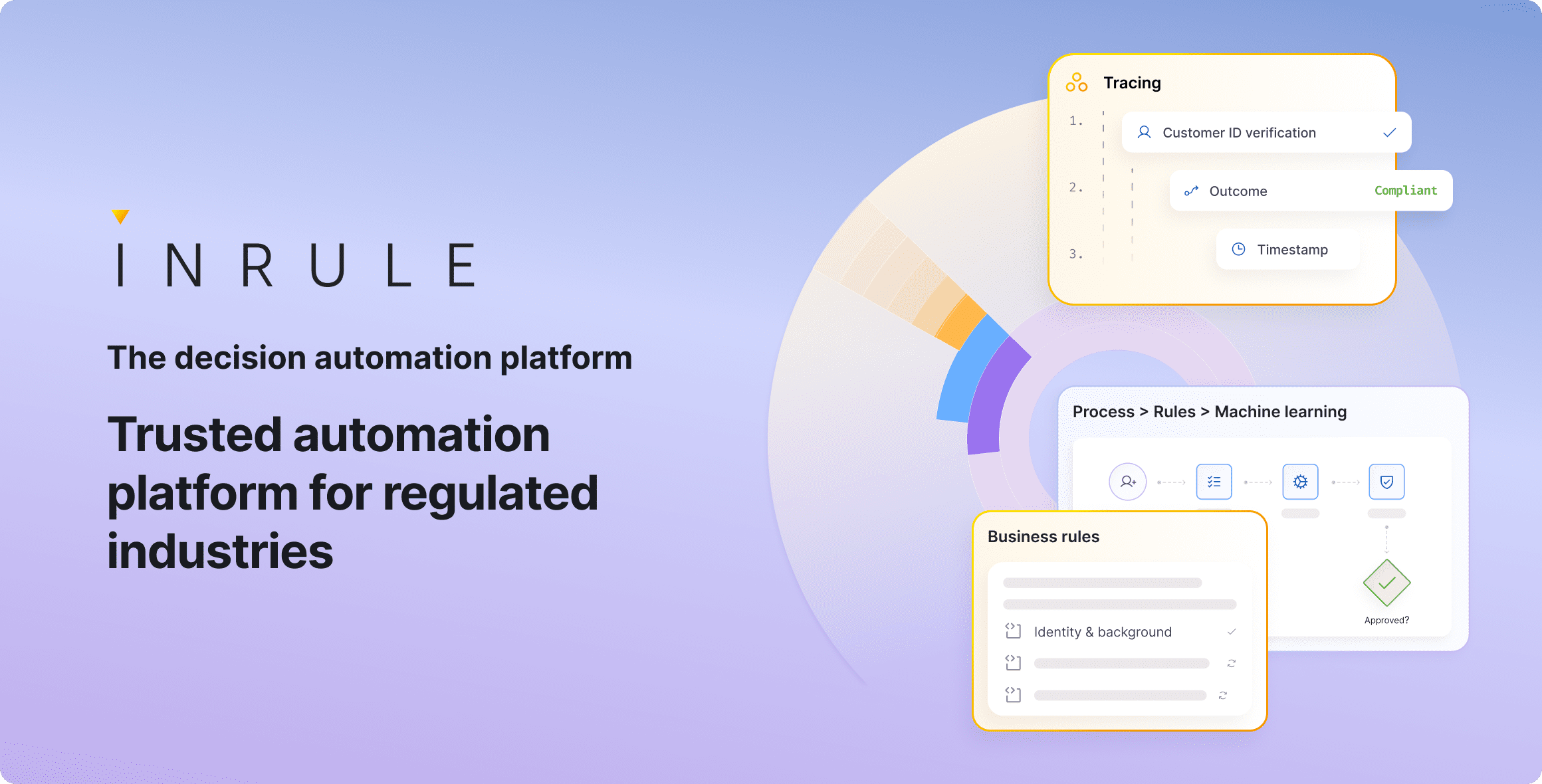
New Study Finds AI Benefits Hinge on Explainability and Automation with a Human Touch
“The End of AI Ambiguity,” a new research study from InRule Technology®, looks at ethical risks associated with AI and how explainability helps overcome those concerns
CHICAGO – InRule Technology®, an decision automation company providing integrated decisioning, explainable AI and digital process automation software to the enterprise, today published The End of AI Ambiguity, a newly commissioned research study conducted by Forrester Consulting on behalf of InRule. The study found that ethical worries around artificial intelligence (AI) and machine learning (ML) stymie the implementation of AI/ML decisioning. In fact, 66 percent of AI/ML decision makers stated that current AI/ML offerings are unable to meet their organization’s ethical business goals.
Concerns Around AI Ethics
Respondents worry that harmful bias can lead to inaccurate (58 percent) or inconsistent (46 percent) decisions, decreased operational efficiency (39 percent), and loss of business (32 percent). The study concludes that addressing these ethical risks by leveraging human accountability within AI-powered process automation is central to enabling decision makers to better predict customer needs and personalize solutions.
Addressing Ethical Risks with Human Accountability and Explainability
The research found that nearly 70 percent of decision-makers agree involving humans in decisioning with AI/ML reduces risks associated with these technologies, but to keep humans in the loop AI systems need native explainability functionality. Automating human governance and engaging a wider group of stakeholders improves decisions and model transparency.
Benefits of Linking Explainability with a Human Touch
Linking explainability with a human touch also unlocks other benefits: assurance to stakeholders that AI/ML can be safely used (59%), reduced regulatory risk (51%), and fairer models (48%). “Right to explainability” legislation is spreading with the Algorithmic Accountability Act of 2022 proposed in Congress and the European Union pushing for stricter AI regulations abroad, as well. Businesses must take steps today to ensure they can prove the accuracy and fairness of their algorithms.
Legislation for the “Right to Explainability”
According to Rik Chomko, CEO and co-founder of InRule, “AI is consistently ranked by c-suite executives as critically important to the future of their business, yet two-thirds of those surveyed by Forrester Consulting have difficulty explaining the decisions their AI systems make. Built-in, native explainability empowers non-data scientists and c-suite executives to quickly understand why a decision was made and take confidence in the outcomes of intelligence automation.”
Download the full research study and recommendations here.
# # #
About InRule Technology
InRule Technology® is an intelligence automation company providing integrated decisioning, machine learning and process automation software to the enterprise. By enabling IT and business leaders to make better decisions faster, operationalize machine learning, and improve complex processes, the InRule® AI-decisioning Platform increases productivity, drives revenue, and provides exceptional business outcomes. More than 500 organizations worldwide rely on InRule for mission critical applications. InRule Technology has been delivering measurable business and IT results since 2002. Learn how to make automation accessible at www.inrule.com.
Follow InRule Technology on Twitter and LinkedIn.
InRule and InRule Technology are registered trademarks of InRule Technology, Inc. All other trademarks and trade names mentioned herein may be the trademarks of their respective owners and are hereby acknowledged.
